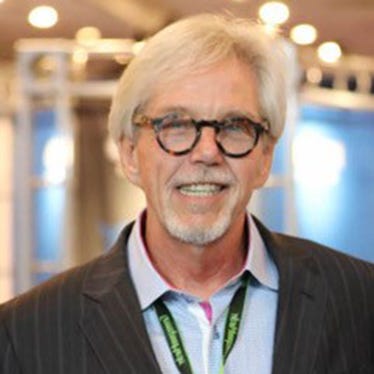Hemp IPO forging ahead despite market instability
On March 12th, the headlines described a plunging stock market and plummeting oil prices. Then, the co-founder of Collective Growth Corp. said, “And today we are about to meet with investment bankers!”
March 23, 2020
Editor’s note: This is part of a series of first-person accounts describing the effects of the coronavirus on individuals and their businesses in the natural products industry.
These are indeed strange times, and we all must unite so that one day soon we can return to a semblance of what life was just three short weeks ago. We should all be concerned about what the coronavirus pandemic means for our health, our livelihoods, our food system and our communities, both in the short and long term. Despite a great deal of uncertainty, elements of our economy continue to move forward—and must move forward—because when we emerge from this punch in the gut, life should quickly return to what we remember as the best of times.
As proof that the world continues on many levels, and as a way to provide some perspective, I share my experience and that of my partners over these last few days bringing our new entity, Collective Growth Corp, to the capital markets through a Nasdaq-listed IPO (initial public offering).
We are actively working within the agricultural space. Hemp and its conversion chain is our focus. We have worked for years identifying the challenges and working on the solutions. Now that the U.S. has broken down all of the legal barriers that have prevented this crop from being grown over the last 85 years, we have developed a business plan that addresses the opportunities that the Hemp Farming Act of 2018 provides all American farmers, manufacturers and consumers.
In my three-year volunteer role as chair of the National Hemp Association, I have known for some time that the biggest barrier to capturing this national, billion-dollar opportunity is scalability. There currently is no harvesting equipment that processes a fiber crop that can grow 21-feet tall and is tough as steel. No commercial equipment can, in one pass of a combine, capture each of the components of this sustainable crop, separating them for the next step of processing.
We need American know-how that can engineer and produce, at a commercial scale, equipment that can take the stalk and break it into its most usable and valuable natural fibers. We also must capture: the seed, a super food that is 100% digestible protein and a perfect balance of omega-3 and omega-6 fatty acids; the leaves and flowers for essential oil extracts like CBD, CBG and CBN; and the woody core for bio plastics, construction and erosion materials, and automotive components. Without a group with a track record of success, a commitment to the environment and some financial wherewithal, the efforts to rekindle this crop will fall flat.
The coronavirus has reminded us that we also need an American supply chain. We should work as hard as we can toward self-sufficiency and ask Congress to make clear a pathway that will allow Americans to ensure our consumption needs can be found first within our own borders.
Nasdaq listing
Off to the financial markets we go. We’ve submitted our prospectus to the Nasdaq, and it was approved. We put up our own “at-risk” capital and assembled banking partners who clearly understood our approach and goals.
I will never forget the image of my partner, Bruce Linton, who founded Ontario, Canada-based Canopy Growth Corp., holding up the front page of The Wall Street Journal the morning (March 12) we began our roadshow. The headlines described a plunging stock market and plummeting oil prices. Then he said, “And today we are about to meet with investment bankers!”
Yet we persevered. We believed in our subject and offering. It had all of the touch-tones of the times: first to market, multi-purpose, multi-revenue, an environmentally solid new crop with a reported 25,000 uses. As our day of meetings and presentations progressed, the stock market continued to have wild swings, retreating to lows not seen in years.
Surprisingly, not one of our prearranged meetings was canceled or postponed. Each investment group or analyst delighted for the break and an introduction to something new, forward-thinking and one that could help American farmers and manufacturers. That sentiment continued throughout the meetings over the next five days. Our pitch became stronger, and our resolve deepened.
On March 16, an article from Proactive Investors declared, “Just one company (Collective Growth Corp) is primed to enter the fray.” Not sure if that meant we were crazy or if the declaration would send a message of support to both the investment and hemp industries. No matter. As Bruce also says, “We’ll take any media offered!”
The publicity has attracted the attention of investors big and small, companies and legislators who want us to consider their community or state for our first facility. We’re humbled by the acknowledgement that our next step is the most needed step for the industry. Shares of Collective Growth Corp. could begin trading on the Nasdaq as soon as April 2 after the underwriter, Cantor Fitzgerald, sets the price, which is scheduled for the end of March.
Coronavirus aside, we have come to realize farmers will continue to plant this year’s crop. Food processers will continue to manufacture, and American ingenuity will prevail. Investors will invest, and consumers will seek products that are grown in the U.S., protect the environment and are natural and healthy. Hemp will soon be a mainstay within that process, and our industry will succeed.
My hope is that we will also come out of this global pandemic a much better country.
Geoff Whaling is chair of the National Hemp Association, a non-profit hemp advocacy group based in Washington D.C. He has worked with the White House and members of Congress to pass federal legislation, including the 2018 Farm Bill, which removed hemp and its constituents from the Controlled Substances Act. Whaling is president and co-founder of Collective Growth Corp., which has received approval from the Securities and Exchange Commission to trade on the Nasdaq. CGC will be focused on the hemp conversion chain, bringing together (for end users and markets) the missing yet necessary piece of harvesting, decortication, processing and secondary processing of hemp and its major components.
About the Author
You May Also Like

